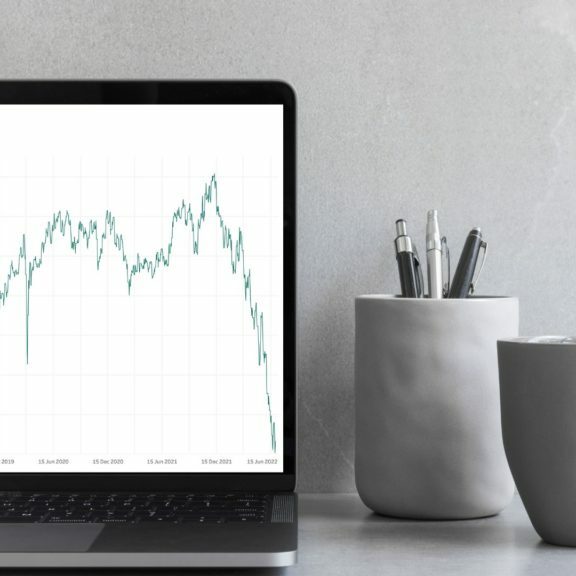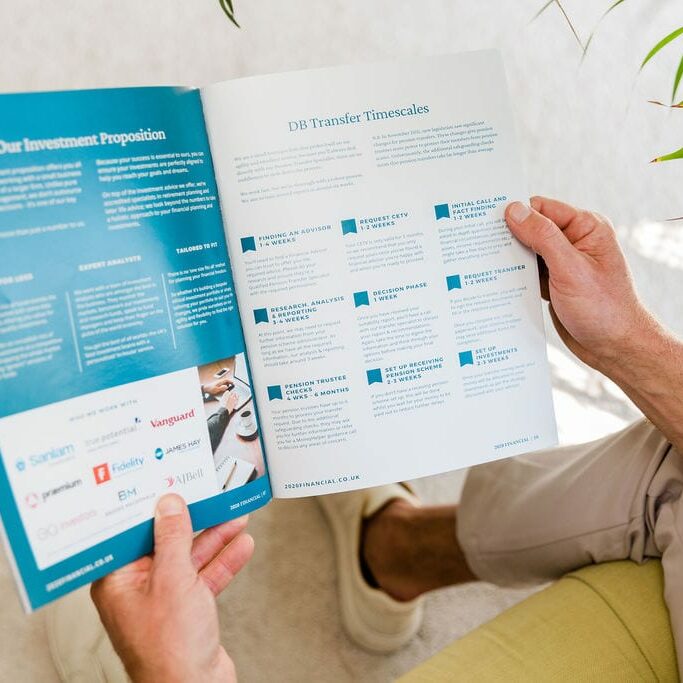If you want to cash in a defined benefit pension, there is a lot that you need to keep in mind.
While you might be able to transfer out of a defined benefit pension, it must be transferred into another pension vehicle such as an existing personal pension, an existing employer pension or a SIPP or SAAS.
However, it is not possible to transfer out of all defined benefit pensions. For unfunded public pension schemes – such as those for the armed forces, emergency services and teachers – the rules mean that you cannot transfer out of the scheme. Saying that, the benefits of these pension schemes are abundant and there is little reason that you would want to leave one.
If you have a funded private pension scheme, it is likely that you can opt-out of your defined benefit pension and transfer to another. But, just because you can, it doesn’t mean that you should. There are high risks attached to final salary pension transfers and it is vital that you navigate your decision with the support of a qualified pension transfer specialist.
Can defined benefit pensions be cashed in?
Requests for Pension Transfers have seen a significant increase since pension freedoms were introduced in 2015. Although 2020 and 2021 have seen fewer people opting to cash in their final salary pension than the highs of 2018, there are still plenty of people wondering if final salary pensions can be cashed in.
It is important to know that not all Final Salary pensions can be cashed in. If you’re in an unfunded public sector scheme i.e. Teachers, Emergency Services or the Armed Forces you are not able to transfer out.
If you are in a funded scheme – normally held in the private sector you should be able to transfer your pension.
However, if your pension transfer value is worth more than £30,000 it is a regulatory requirement that you receive advice from a Qualified Pension Transfer Specialist before moving your pension.
On top of this, most of the main Pension providers now require proof that you have not only received financial advice from a qualified individual but that you also have a positive recommendation to transfer.
If you are able to transfer out, that doesn’t necessarily mean that you should. For a lot of people staying put is the best course of action.
Thinking of cashing in your Defined Benefit pension? Check out Final Salary Pension transfer guide or read Should I Transfer My Final Salary Pension to a SIPP?

How do I cash in a defined benefit pension?
It’s not possible to simplycash in a defined benefit pension. If your defined benefit pension is worth more than £10,000 it needs to be transferred to a defined contribution pension before you can access your money.
If your pension is worth over £30,000 it is a regulatory requirement that you receive advice from a Qualified Pension Transfer Specialist before moving your pension. On top of this, all but one of the main SIPP providers now require proof that you have not only received financial advice from a qualified individual but that you also have a positive recommendation to transfer.
The first step is therefore to engage a qualified pension transfer specialist. Once you have chosen the right financial advisor for you, you will work alongside them to collate as much information and advice as possible. Your financial advisor will compile a comprehensive report packed with risk analysis and recommendations. The report will be based on in-depth research and an analysis of your financial situation and unique circumstances; they will then lay their findings out alongside the true benefits that you are giving up.
If this report provides a positive outcome, then you will use it to apply to your pension scheme administrator to have your pension transferred into a new pension arrangement.
Even with the £30,000 threshold, it is getting less and less likely that you can transfer out of your defined benefit pension on your own. This is due not only to the risk attached to final salary pensions but also the enormous benefit of working with a final salary pension transfer specialist; they are worth their weight in gold.

How much does it cost to cash in a defined benefit pension?
Defined benefit pension transfer advice is not cheap. There’s a common misconception amongst those looking tocash in a defined benefit pension that it’s a box-ticking exercise and that they merely require a signature to show that they’ve had advice. The reality is very different.
The cost of the pension transfer relates directly to the fact that this is a highly specialised area of financial advice that can only be carried out by a qualified pension transfer specialist and the nature of the work is high-risk for your financial advisor to take on; they are, after all, liable for any ‘bad’ advice they provide.
The cost of transferring a defined benefit pension depends on which pension transfer specialist you choose and also how much your transfer value is worth.
All financial advisors will price final salary pension transfers differently. Here at 2020 Financial, the cost of a defined benefit pension transfer is:
| Service | Initial Fee | Ongoing Fee |
| Pension Transfer up to £75000 | 4% of initial investment e.g. e.g. £50,000 investment = £2,000 fee | 0.75% of fund value annually (paid monthly)* |
| Pension Transfer between £75,000 and £150,000** | 3% of initial investment e.g. £100,000 investment = £3,000 fee | 0.75% of fund value annually (paid monthly)* |
| Pension Transfer between £150,000 and £350,000 | 2% of initial investment e.g. £200,000 investment = £4,000 fee | 0.75% of fund value annually (paid monthly)* |
| Pension Transfer between £350,000 and £500,000 | 1.5% of initial investment e.g. £400,000 investment = £6,000 fee | 0.75% of fund value annually (paid monthly)* |
| Pension Transfer above £500,000 | 1% of initial investment e.g. £800,000 investment = £8,000 fee | 0.75% of fund value annually (paid monthly)* |
| Pension Transfer above £1million | POA | negotiable depending on size of fund |
| Pension Transfer above £2million | POA | negotiable depending on size of fund |
Because of changes to industry rules that now bans contingent charging, you’ll pay the same for transfer advice whether you ultimately opt to transfer or not. This ensures that there’s no conflict of interest in telling you to stay or move.
It’s worth noting that while some providers offer a fixed fee scheme for pension transfers, this price does not cover you if you get a negative report; so, you could pay out a considerable chunk of money and still find yourself unable to transfer your pension at the end.
Even so, it’s money well spent as it is better to pay for the right advice now rather than having to clean up the mess of a bad decision years down the line.
Please note that the cost of Financial advice may not be the only cost you incur to transfer a Defined benefit pension. Your financial advisor should be able to give you a clear idea of the full range of charges involved: READ MORE: HOW MUCH DOES A FINAL SALARY PENSION TRANSFER COST?
Tax implications of cashing in your Defined Benefit Pension
Cashing in your defined benefit pension has many potential consequences but when it comes to the tax implications you should be well informed before you take any action.
Pensions are arguably the most tax efficient investment vehicle available. Not only do you benefit from pension tax relief on contributions, Investment growth within your pension is not subject to capital gains and pensions are also shielded from inheritance tax.
When you cash in your pension, not only do you lose the tax efficient benefits your pension wrapper provided, you may incur other tax liabilities such as:
- Additional Income tax payable on income and/or lump sums (the first 25% you withdraw is tax free)
- Lifetime allowance tax (if applicable)
- Capital gains (if you reinvest the money)
- Potential Inheritance tax
Seek professional tax advice from your accountant.
How long does a defined benefit pension transfer take?
The timeline for a defined benefit pension transfer will change depending on the pension transfer specialist that you engage. Larger firms can take up to 6 months to provide a report and process a transfer. Bear in mind that your CETV is usually only valid for 3 months, so you need to find a company that can work faster than that.
Industry data shows the number of UK advisers offering defined benefit (DB) pension transfer advice has fallen by almost half since 2018, meaning there are fewer firms serving the market. Ensure that whomever you choose, they have the capacity to process your case within your given timeline.
At 2020 Financial it takes us around 4-6 weeks to research and provide a full Final Salary Pension Transfer Report and recommendation to transfer; although this does rely on the client and their pension scheme administrator sharing the relevant information as and when needed. This is one of the huge benefits of working with a smaller independent financial advisor; larger firms can take anything up to six months to complete this type of process.
Remember that once you have been given your cash equivalent transfer value (CETV), you need to move forward within three months; after this, your CETV will expire and you’ll need to apply for a new one, which could see the value go up or down.
For that reason, we strongly encourage you to get all your ducks in a row before asking for your CETV. This should include:
- Choosing your financial advisor
- Setting out your goals for the future
- Outlining your current situation
- Pulling together details for any other pensions
- Drawing up the details of your pension scheme administrator
Armed with this information, you can request your CETV comfortably in the knowledge that you have more than enough time to put it into practice.
Can I transfer my pension myself?
We’ve seen a growing number of self investors looking to cash in a defined benefit pension and invest the money without a financial advisor.
If your pension pot is worth more than £30,000, It’s a legal requirement that you have appropriate advice from a qualified specialist, you cannot transfer your defined benefit pension yourself.
Due to regulatory pressure and changes within the industry, it is becoming harder to transfer a defined benefit pension on your own. Almost all pension providers now require a ‘positive recommendation to transfer’ before they will accept a pension transfer.
FCA rules are clear, a financial advisor is liable for recommendation whether they undertake future investment decisions or not. i.e. If they recommend a transfer but you opt to invest your own money inappropriately, the financial advisor can still be found liable.
Because of this, it is highly unlikely that a financial advisor will provide a positive recommendation to transfer if you don’t plan to work with them on a long-term basis.
If a financial advisor gives you advice and you go on to invest on your own, they are still liable for any mistakes that you might make. Since the risk attached to a final salary transfer is so high, many financial advisors will not feel comfortable taking it on unless they know they have control over the actions that you take.
The fact is that even if you think you are ‘good’ with money, you cannot beat the experience, insight and knowledge of a qualified pension transfer specialist. They will ensure that your investment portfolio is properly diversified and that you are well set up for your goals with just the right level of risk, but they are trained to look beyond the investment itself and to consider other financial implications. While this may cost you initially, the long-term financial benefits are unparalleled.
There’s strong evidence to suggest that paying a financial adviser could make you significantly richer, regardless of whether you consider yourself wealthy enough to need one. In fact, research by International Longevity Centre-UK showed that people who consider themselves ‘just getting by’ financially could benefit from even greater gains that more affluent individuals – although both benefitted from a significant gain versus their non-advised peers.
The report found that 9 in 10 people were satisfied with the advice received, with the clear majority deciding to go with their advisor’s recommendation.
Defined benefit pension transfer specialists
Final salary pension transfers are a very niche service; these days, there are fewer and fewer financial advisors that are qualified to provide this sort of advice.
When seeking out a financial advisor, you need to look for one with all the necessary requisite approvals from the FCA as well as the right insurances. In addition, check that they have a proven track record for investment and that you will always be speaking directly to the pension transfer specialist, rather than receiving robot, textbook advice from someone lacking the appropriate qualifications. This matters because you cannot underestimate the importance of your personal circumstances; you need to work with a pension transfer specialist who takes in all the nuances of your individual situation and feeds them into a bespoke plan built around your goals for the future.
This plan may not even include a pension transfer; transferring your pensions could mean you lose valuable benefits you might not even know you have, so you have to make sure you get the right advice before you transfer anything.
Our pension transfer specialists can make sure that you don’t give up valuable benefits without considering the long-term impact of doing so. Our detailed analysis will help you assess your options and decide if a Pension Transfer is right for you. We have the expertise and technology to help you make a better financial decision.
Get in touch today to schedule a free consultation with one of our qualified pension transfer specialists. We look forward to hearing from you.



